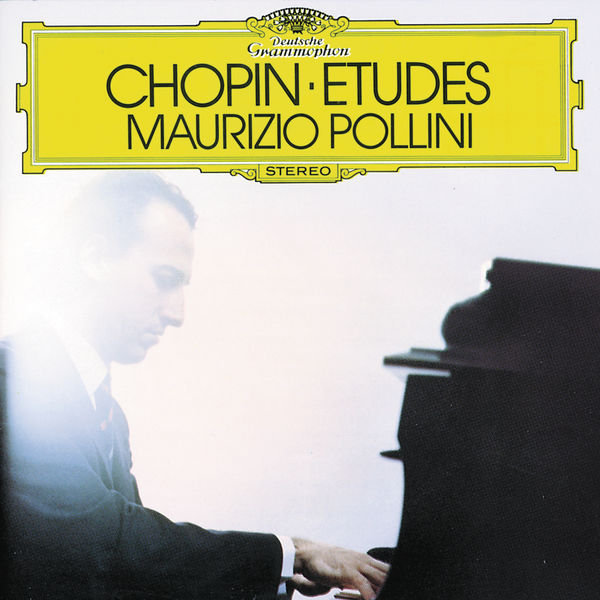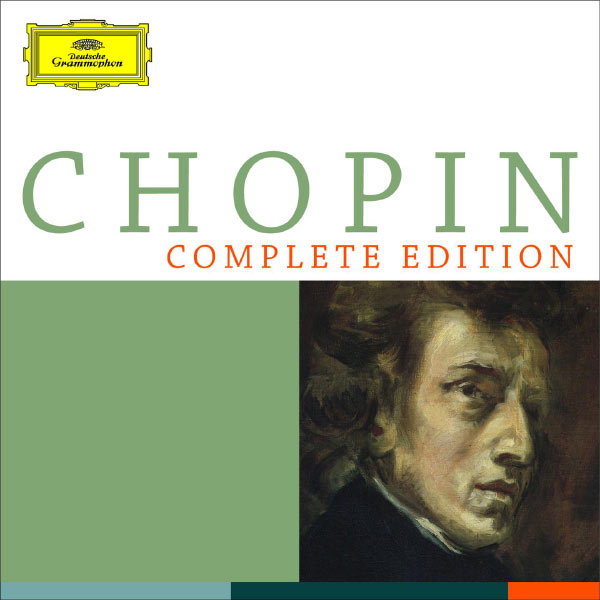This list was triggered by a very interesting thread on a discussion forum I participate in, on Computer Audiophile. The thread is called “My Essential Classical Albums” by a forum participant called Sphinxsix.
The entire thread is very much worth checking out, I found a lot of recommendations on there already.
But with this specific question regarding Chopin, I noticed that I already pretty much had all the recordings I recommended covered on my blog. So in part, this is also a “best of list” of my Chopin blog posts. But there are also quite a number of albums I haven’t featured yet.
For those albums previously covered, you will find links in the entries below to the original blog posts. In the original blog posts, you’ll also find their respective download links.
1. The Nocturnes – Moravec

To me, the Nocturnes are the quintessential Chopin, even more than the Preludes or the Etudes. And when we talk Nocturnes, the legendary Ivan Moravec version really is unbeatable. It is not by coincidence that I’ve ranked Moravec in my in My Top 10 Favorite Classical Pianists for this album alone. I’ve also mentioned this Album in My 25 Essential Classical Music album, as it is so important to me.
2. The Preludes – Blechacz

Right after the Nocturnes, the Preludes are my favorite Chopin, both op. 10 and 25 are oustanding achievements. Here again I could have listed dozens of recordings, but for a Top10 list I’d really like to restrict myself to the young Polish pianists Rafal Blechacz, who recorded this as one of his first albums on Deutsche Grammophon after winning the Warsaw Chopin competition. Another “triple winner”, as he also shows up in My Top 10 Classical Pianists and My 25 Essential Classical Music albums with this recording.
3. The Scherzos – Grosvenor

Some readers may be suprised that I rank these so high, but these little gems are very close to my heart. Completely different, each one of them is a world on its own.
Here, my favorite version comes from the young British pianist Benjamin Grosvenor.
Grosvenor is also a part of my Top 10 Favorite Classical pianists.
4. Piano Concertos – Krystian Zimerman

The legendary Polish pianist Krystian Zimerman, himself also winner of the famous Chopin competition, has recorded the concertos twice. Once with the LA Philharmonic under Giulini in the late 1980s. Knowing that Zimerman is one of the most perfectionist pianists out there, if he records something twice, you can be sure, he does it for a reason.
This second recording from 1999 with a hand-picked “Polish Festival Orchestra”, and while the Giulini recording is already excellent, this one really is a true benchmark.
A must have.
My rating: 5 stars
5. Ballades / Barcarolle – Krystian Zimerman

Zimerman (also one of my Top 10 Favorite Classical pianists) is also my recording of choice for the Ballades.
I’ve had the pleasure of hearing Zimerman perform some of these live, including the beautiful Barcarolle that you’ll also find on this outstanding 1988 album. Don’t miss it.
My rating: 5 stars
6. Etudes – Pollini

A Chopin list without Maurizio Pollini wouldn’t be complete. I could have easily mentioned him for the Preludes, and several of his other Chopin recordings are legendary. He, like Blechacz, Zimerman above and Argerich below, is also a winner of the Warsaw piano competition (Not that this competition is held only every 5 years, winning it is truly a big deal).
The Etudes are technically extremely challenging. Apparently even a true master like Pollini needed cuts in recording (hundreds of them if you believe some reports). In spite of this piecemeal type recording, the result is just fantastic, and can be described with only one word: fantastic.
Perahia would have been a nice alternative, but Pollini really remains the reference.
My rating: 5 stars
7. Argerich Legendary Chopin

Marta Argerich won the Chopin Competion 5 years after Pollini.
This was one of her first recordings. You will never hear Chopin’s sonata no. 3 played more passionately. Argerich (another member of my Top 10 Favorite Classical Pianists) is in a way the complete opposite of Pollini. Pollini is typically the perfectionist, rational architect, and Argerich is known for her energy and fire. Check out her recording of the piano concertos for another example of her extraordinary talent.
My rating: 4 stars
8. Cello Sonata – Argerich / Rostropovich

Chopin really isn’t well known for his chamber music. So I must admit that until recently I only knew one recording of this, by Sol Gabetta. In preparation of this blog post I checked out several versions, and end up again with the great Martha Argerich, joined here by the cello giant, Mstislav Rostropovich.
My rating: 4 stars (excellent playing, but the music is not as essential as the piano pieces)
9. Mazurkas – Rubinstein
No Chopin list can be complete without the name that is most closely associated with this composer: Artur Rubinstein.
This recommendation is following up to a recommendation in the forum thread that I should check out his earlier recordings. I ended up liking this version most:

Yes, it truly is a historic pre-war recording, but the playing really makes up for it. I usually didn’t care so much about these little dances, but Rubinstein really gives these little pieces such a very special meaning, it is a pleasure to listen to.
My rating: 4 stars
10. The Complete Chopin Edition on Deutsche Grammophon

I typically don’t recommend box sets. Even the better ones are typically hit and miss, as they are typically just “recycling” of older catalog material.
But you probably have noticed the large number of yellow covers above, and DG really did a great job on this 17 CD box.
You’ll get the Zimerman piano concertos in the Polish Festival version, the Ballades again by Zimerman, the Pollini etudes, and the Nocturnes by Maria João Pires (my second favorite after Moravec), the Preludes by Blechacz, and the Cello Sonata by Argerich
In a way, you could think that for this blog post pretty much all I did was copy this box set. Well, actually no, I got all of these albums individually over many years (and also I’m not getting any incentive from DG here). But I’m truly impressed by the selection that DG did here (having all this in their archives obviously helped).
On top, you’ll also get the Mazurkas and Valses well played by Vladimir Ashkenazy, some individual pieces with Anatol Ugorsky, the Scherzos by Pollini again, and the piano sonatas by Lilya Zilberstein and Pollini again.
So if you want to kick-off your Chopin journey, this box really is all you need for a start with truly outstanding recordings.
My rating: 5 stars
You can find the recordings either in the respective original blog post or here:
Concertos / Zimerman: here (Qobuz) and here (Prestoclassical) (note that Presto has a special offer on Zimerman recordings until the end of 2017)
Ballades / Zimerman: here (Qobuz) and here (Prestoclassical)
Etudes / Pollini: here (Qobuz) and here (Prestoclassical)
Argerich Legendary 1965 recording: here (Qobuz)
Argerich Rostropovich Cello Sonatas: here (Qobuz) and here (Prestoclassical)
Chopin Mazurkas Rubinstein here (Qobuz) and here (Prestoclassical)
The Complete Chopin Edition here (Qobuz) and here (Prestoclassical)
















